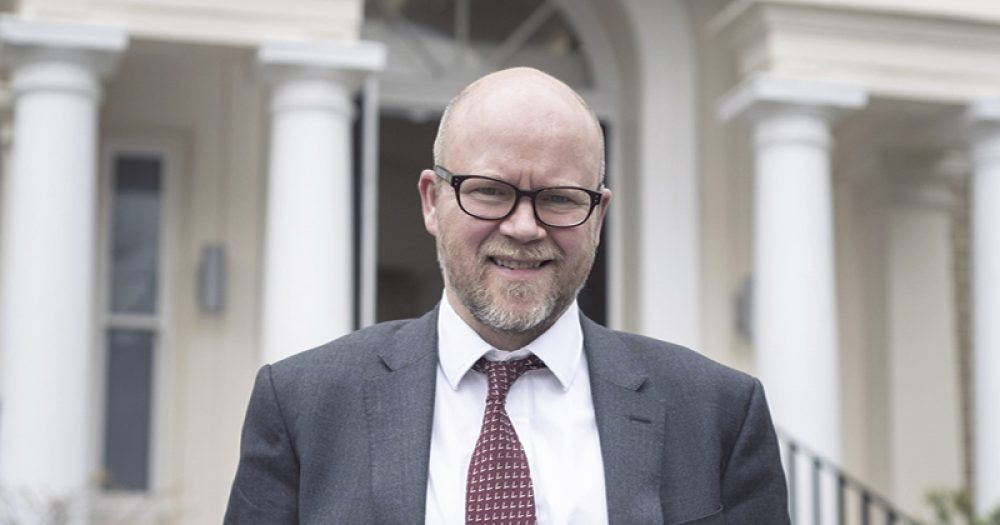University technical colleges and studio schools should be allowed to select pupils on the basis of aptitude, a controversial new report authored by Toby Young has argued.
Furthermore, such a move would be legal and would only require a change in policy, according to ‘Technically gifted: How selection can save technical and vocational education’, published today by the Centre for Policy Studies.
Its author, Toby Young (pictured above), was forced to resign from the board of the Office for Students in January following numerous offensive tweets, and subsequently relinquished his role as head of the New Schools Network.
“If the government is serious about creating a revolution in technical and vocational education, it needs to allow the 14-19 specialist schools to select for aptitude so these institutions can become beacons of excellence, sending a message that this type of education is not for children who struggle in mainstream schools, but a valuable pathway for those with a real flair for it,” he wrote.
Such a change would only require a change in policy, rather than a change in the law, even though it would affect pupils from the age of 14, Mr Young argues.
This is because UTCs and studio schools are academies, and the requirement for them to comply with the School Admissions Code – which bans selection – is included in their funding agreements rather than the provisions of the 2010 Academies Act.
“That is a policy decision, not a legal requirement,” he wrote.
“There is no statutory duty imposed on the Secretary of State to insist that academies comply with the code or admissions law relating to maintained schools.”
The “poor performance” of UTCs and studio schools is “largely due to the fact that they cannot select pupils but must take all-comers”, Mr Young argued – which in practice means they are used as “dumping grounds” for badly-behaved and low-attaining pupils from nearby schools.
By allowing selection by aptitude, the schools would be able to choose the pupils who demonstrate a talent for their specialism, and turn away those who don’t.
While this would reduce UTC and studio school numbers in the short-term, “it would lead to a swift improvement in their GCSE results and a corresponding improvement in their Ofsted ratings – which, in turn, would make it easier to recruit in future years,” the report said.
Furthermore, selection by aptitude at 14 would help to increase the success of T-levels and apprenticeships, as it would “signal that it [the government] regards this type of education as suitable for children of all abilities, not just those who find themselves without the necessary qualifications to do three A-levels”.
UTCs and studio schools have both struggled with poor performance and low student numbers since they were first introduced in 2010.
In total, 26 studio schools and nine UTCs have either closed or announced plans to shut.
Of the 36 UTCs to have been inspected by Ofsted, 10 have been rated ‘inadequate’ and a further 13 have been rated ‘requires improvement’.
Geoff Barton, general secretary of the Association of School and College Leaders, said Mr Young’s proposal “requires a significant leap of faith in the power of selection”.
UTCs and studio schools are “most likely to work when they are part of coordinated local education plans,” he said.
“For too long our technical education has not had the same parity of esteem as our academic system, with many courses undervalued by employers and failing to provide students with the skills they need to secure a good job,” a Department for Education spokesperson said.
“This has to change which is why we are focused on creating a world-class technical and vocational education system that offers people a real choice of high quality training.
“Alongside our apprenticeship reforms, we are introducing new T Levels – a once in a generation opportunity to reform technical education and put it on a par with the best in the world.”






There used to be technical schools in some parts of the country in the days when everyone took the 11+. I have a friend here in Littlehampton who grew up here and went to one in Worthing. They seemed to be mostly for boys. I asked him, once, how he remembered being chosen for it…..and he told me he was a borderline grammar school student who could draw neatly with a pencil and ruler! I’m not sure that those were really the criteria…..but I’m sure they’d do for a modern, rather amateurish (thank you, Mr Young) means of selection…….
I agree with Geoff Barton when he says that UTCs and studio schools are most likely to work when they are part of coordinated local education plans.
Unfortunately that has not been the case, and I would agree with Toby Young’s comment that schools have used (abused?) the situation by transferring pupils they didn’t want into local UTCs and studio schools. Small wonder that they don’t succeed.
I don’t think selection is the answer, but if (and that’s a debate in itself) we want to increase the opportunity for technical and vocational education from 14 years up then something needs to change as the current approach isn’t working.
Toby Young is wrong – the legally-binding Schools Admission Code says:
‘Academies are required by their funding agreements to comply with the Code and the law relating to admissions, although the Secretary of State has the power to vary this requirement where there is demonstrable need.’
and
‘There is a general restriction on selection by ability. Only designated grammar schools or schools with partially selective arrangements which already had such arrangements in place during the 1997/98 school year are permitted to continue to use selection by ability’.
Even if funding agreements were tweaked in the way Young suggest, the restriction on ability would still apply.
Mark – I agree that UTCs and studio schools risk being dumping grounds for pupils other schools don’t want. But the answer isn’t allowing pupils to choose a technical career at 14 in separate and highly-specialised institutions. It’s to set up an updated Technical and Vocational Education Initiative (TVEI) similar to the one rolled out nationally by Lord Baker (before he became a lord) in the eighties. It was very successful in raising the profile of generic work-related skills and high-quality careers education and guidance.
That would be very expensive, however, so not likely to happen especially as the groundwork put in place by Lord Baker was undermined by ceasing the funding and then completely demolished by Michael Gove.